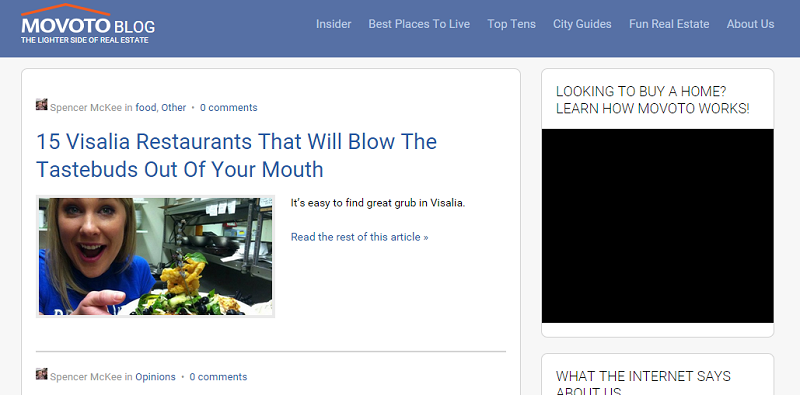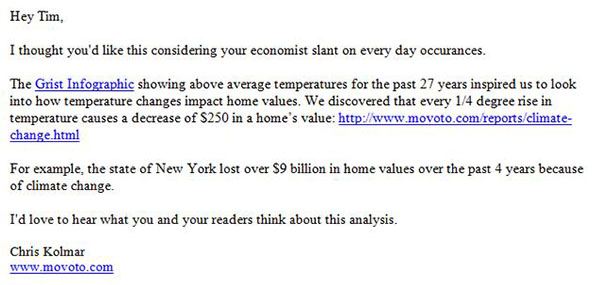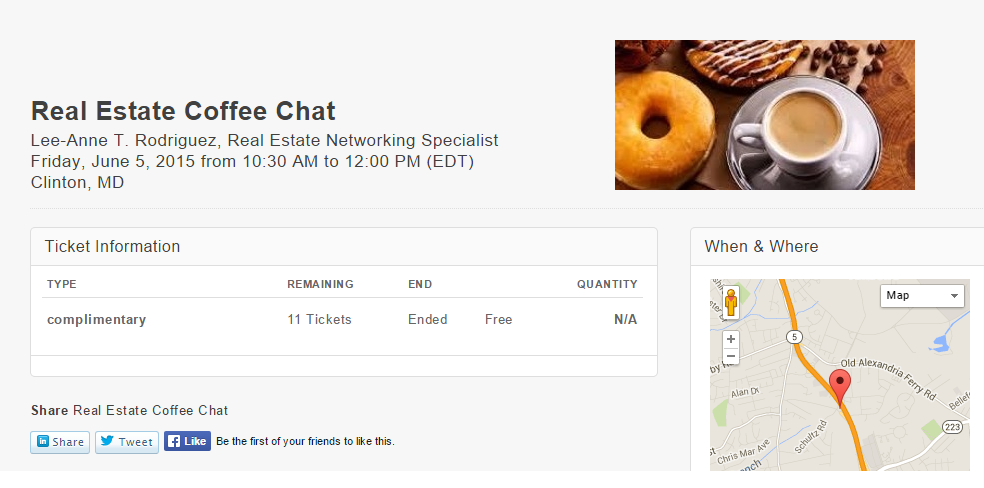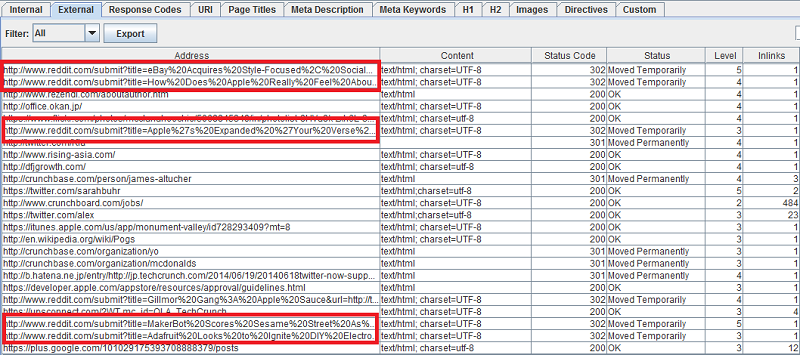by Venchito Tampon Jr | Last Updated on February 8, 2021
Real estate industry has been one of the highly competitive niches across the web, particularly in offering potential buyers to view their detailed property listings through different marketing methodologies as well as capitalizing on these channels to convert potential customers into happy clients.
The “content is king” mindset isn’t enough to build links to a realtor’s website – creative content marketing strategy with a solid team in play is needed to beat the link building competition.
However, there are a few considerations that must be kept in mind when planning to conduct a link building campaign for a real estate website, which some of them are stated by Garett French in the latest roundup on link building failures:
- Realtors are not website/publishing savvy – some of them want online brand presence alone.
- Most realtors are non-responsive (too busy to respond to emails since their main agenda is to exceed their quota sales and/or expand their business operations).
- Realtors have low perceived value of publishing non-sales content on their websites.
- Geography is a vital factor for realtors as linkers.
In this post, I’m going to show actionable tactics that skyrocketed results for some of the newly-branded websites in the real industry today.
Creative Content Marketing
Content marketing has grown its demand for the last decade as more and more companies are turning to this inbound marketing approach since they find it as a very effective tool to increase brand awareness, following and industry authority.
In driving results through content marketing campaign, the requirements won’t only limit to the number of content creators in a team and to the expected campaign’s budget, but more so to the number of visitors/consumers engaged in a certain type of content as well as to how many of them are converted to customers/loyal followers.
A specific content campaign is being measured through metrics defined on its content marketing goal(s) (which are clearly explained in this Whiteboard Friday edition of Moz).
One measurement that is still underrated by many digital marketers is the page/site’s usage data, which can highly reflect the quality of the site/page and the level of experience it provides to its users.
Certain types of content in the real estate industry had been effective in bringing positive usage signals to the site where these content assets are hosted.
A few of them are:
- Listicles
- Heatmaps (and maps in general)
- Big, delicious full screen images
- Really meaty infographics
- Curated video content
Movoto paved a way to becoming one of the content authorities in the real estate niche – publishing high quality and interactive content assets that both earned hundreds even thousands of social shares and generated hundreds of editorial links from top media outlets, niche-specific blogs and web communities (forums, Q&A sites, etc..).
There are so many actionable tips that we can digest from Movoto’s content marketing campaign that you can also apply to your real estate blog/company or to your other related website (since this list of methodologies are result-driven regardless of the type of industry).
For content ideation:
- If working with a team, you can setup a regular brainstorming session daily to generate content ideas and themes that could resonate to your target audience, not necessarily your potential customers (here’s a sample spreadsheet of Movoto that you can use for your own brainstorming session).
- Tap other industries that have verified linkable audiences, active social sharers and/or content researchers/editors to increase the chances of getting eyeballs for your content (niches like video games and finance could be tied up to real estate industry). See this Marvel Character Map and Hyrule Castle of Movoto).
- Look for specific needs in web communities and drive your content with a mission to solve people’s problems (topics like disaster tips, emergencies and plumbing are most-sought themes in real estate related sub-reddits).
- Publish seasonal content that have high tendencies of going viral and does help in acquiring more social shares and contextual links to your domain. One incredible example is this content piece from Winkworth.
- Create buying guides for potential real estate clients or customers so they can simply follow a step by step process on how they can partner with your real estate company to buy or sell their houses offline.
- Produce content assets that can be annually updated to continually serve your audience with the right information every year. This will also help your site earn links from real estate bloggers/researchers as they would still find your content valuable years after it has been published on your blog (e.g. Savills House Price Predictions) .
Here is a comprehensive post from Paddy Moogan on generating content ideas using Buzzsumo – you may want to check it out for future references.
For content creation:
- Invest time and effort in brainstorming for headlines of your content to increase clicks from users coming from different sources (search, social and referral). Check out this short and actionable checklist on headline writing).
- Make specific call to actions visible on your page to funnel visitors down to your sales funnel (encouraging them to subscribe to your email list, to share your page on social networks or click on a link pointing to a related sales page).
For content distribution:
- Cite your content from your externally-distributed posts on other blogs to get additional referral visitors and potential linkers to your site (getting coverage and exposure on high traffic blogs are beneficial for your brand especially if it is where your target market is).
- Reach out and connect to industry influencers and real estate bloggers who’ll find value and most likely share your content to their followers and readers.
- After a month or two, you can search for blogs who have mentioned your brand or your content but haven’t linked to your site/page. You can ask them to cite you as the original source of the content, especially if the piece is legally owned by your brand (i.e. infographics, whitepapers, etc..).
- Monitor incoming links to your domain and interact with link creators. This will help you build a community that could later on benefit your content marketing campaign since having a solid following base can help you consistently attract social shares and contextual links from networks of the said community.
Popular content assets of Movoto:
- Wealthiest Person Map
- 10 Most Stressed Out States in America
- Which State is Torrenting the Most and What Are They Torrenting
- Video Games Consoles in Every State
- Top 10 Most Exciting Cities
- How Much a Pumpkin the Size of Your House Weighs
Useful resources on creative content marketing:
- Refugeek’s Comprehensive List of Content Ideas
- 10 Principles to Drive Creative Content
- How to Scale Creative Content Marketing
- Creating and Developing Content Assets Like A Pro
- 25 Creative Content Promotion Strategies
- How to Improve the Value and Volume of Content Marketing
- Infantry Square to Promote Your Content
Local SEO
Optimizing your website for local search experience is one of the effective ways not only to drive targeted users from search when ranking your page(s) for industry-related and local-based search terms, but to increase your chances of earning links from content creators and industry publishers who are looking for references for their content works.
Jason Acidre recently published a list of actionable SEO tips that mainly discuss the common yet underrated techniques to optimize a website for search:
- Maximize crawl budget to pass link equity to site’s key pages.
- Optimize for Knowledge Graph and Google Quick Answers Box
- Optimize for long-click to drive more visitors from ranking pages.
- Bulk-up more signals on pages you want to rank.
- Continuously work on and monitor your brand’s external linkable assets.
Aside from the SEO tactics mentioned above, there are still other techniques that you can use to build and/or earn direct or indirect links to your page/domain through local SEO activities, such as:
- Contribute offline external content to real estate columns to get more exposure for your brand in the local real estate scene.
- Reach out to local event organizers and offer something valuable to them in exchange for a logo/brand promotion (sponsorship, speaking engagement, etc..).
- Use social media sites like Twitter to engage with your existing social following. You can tweet out questions and ask their most important consideration when moving to a new neighborhood. Use their answers as added information and tips to your content.
- Provide the right information in your branded pages (company, our team, services, etc..) so when people do a Google search for your brand after they received a real estate flyer, it would be easy for them to find the exact details they need about your company.
- Write an area-based intent title and description in your page. Don’t use other locations where you’re not selling houses at. Misleading search users on your website will negatively affect your site’s usage.
- Respond to negative reviews of your brand on local review sites like Yelp to preserve good reputation.
- Submit to local directories and citation sites to increase your site’s domain authority and to improve the local relevance of your brand.
Other useful resources:
- The Ultimate Guide to Local Schema
- The Anatomy of a Perfect Local Landing Page
- Citation Building Strategies
- Getting More Local Reviews by IAcquire
Engagement-based Social Media Activities
Having created your own branded pages on different social media networks (Facebook, Twitter, Linkedin, Instagram, Pinterest, etc..) isn’t enough to build brand awareness in this marketing platform – social media.
Engagement with social users using your branded social profiles is still the key to bring social signals to your content/brand, which will also help you eventually earn links from bloggers and content creators who would find your real estate content on social media (through social sharing) – making it as useful references for their own blog posts.
A few of these engagement activities are:
- Share content pieces from non-competitor real estate brands on your own social accounts (e.g. Twitter) to get to your target influencers’ radars and absorb their social followers as well.
- Tweet out tips and learnings from your brand’s latest local real estate events. You can create your own branded hashtag (e.g. #realestatebrandtips) and use it consistently when sharing tips on real estate. As for local events, here’s a good example of a real estate coffee chat.
- Make a Twitter list of the columnists and bloggers in the real estate niche (start with regular contributors of Bigger Pockets). You can also create a spreadsheet of these content creators, listing their names and contact information so you can easily reach out to them via email if you have something valuable that you can share to them. Organize the list according to your priorities – # of social followers, influence score or # of sites they regularly contribute content.
- Keep track of the latest social conversations (real estate trends, updates, tips, etc..) so you can generate ideas for your content that can serve interests of your target audiences.
- Spark conversations that can help your brand communicate with your existing social followers. You can ask a question like “name your top 3 local SEO personalities that have influenced or inspired their career the most” (the results that you can generate from this can be used for your next blog post).
Other useful resources:
- 7 Visual Ideas That Will Increase Your Social Engagement
- 39 Posts on Social Media Strategies from Kaiserthesage
- How to Obtain Fast High Search Rankings through Social Signals
Content Sourcing
This principle is originated from Jason Acidre, which is basically defined as a process of tracking regular sources of popular news sites in the industry (finding what domains high-tier news sites are regularly referencing from their (news sites) content is a long-shot tactic that you could take advantage to consistently earn links to your page/site).
The benefits of this link building technique are not limited to the direct links that you can build from A-news sites and to the indirect (second-tier links) you can get from domains linking to your contributed content on news sites, but content sourcing will also help your brand to acquire additional social followers, blog readers as well as conversions to your brand.
You can use Screaming Frog SEO Spider to scrape external links from a particular site or its category pages to see which domains these popular news sites are referencing to.
If you’re looking for link building services for real estate websites, then you can contact us today.
The Author
Venchito Tampon Jr
Venchito Tampon is a Filipino Motivational Speaker, Corporate Trainer, and a Leadership Speaker in the Philippines. He is the CEO and Co-Founder of SharpRocket, a link building agency. With a decade of experience, Venchito has a proven track record of leading hundreds of successful SEO (link builidng) campaigns across competitive industries like finance, B2B, legal, and SaaS. His expert advice as a link building expert has been featured in renowned publications such as Semrush, Ahrefs, Huffington Post and Forbes. He is also an international SEO spoken and has delivered talks in SEO Zraz, Asia Pacific Affiliate Summit in Singapore, and Search Marketing Summit in Sydney, Australia. Check out his other businesses, Hills & Valleys Cafe, Blend N Sips and Saas Pursuit.
How our LINK BUILDING AGENCY builds 250 links/mo consistently using Predictable Link Building Methodology™…
- Using a SIMPLE and PROVEN system
- Using a SCALABLE strategy
- No private blog networks
- No creepy outreach emails





